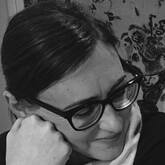|
When I gave birth to my first daughter, the daughter I placed for adoption, I was newly a fifteen-year-old on the heels of a physically abusive relationship with her biological father. I youthfully claimed I would never have more children. To the outside world, I said I didn’t want to parent. My inner voice said I was broken. Despite my declarations, I’ve spent most of my life obsessed with motherhood: what it means, how it looks, who gets to experience it, who deserves it. Still a child really, I swallowed everything Gladney—and anyone else who cared to offer their opinion—told me about adoption. I can’t suss out who said what. Who it was that suggested it would be easier to be unconscious when my daughter was born? Who it was that said my child would not be my child, she could only ever be someone else’s child? Who said I would not be a mother? And if I weren’t a mother, what did that make me? A vessel, I supposed. “There are no illegitimate children. Only illegitimate parents,” is among Edna Gladney’s best known sayings. I was unlawful, illegal, irregular. Further, after my daughter’s birth, the State of Texas would erase me from the page, blow the dirty pink rubber dust away, and put new names on my daughter’s birth certificate. I would cease to exist. As a birth mother, I absorbed each of these things into my identity: my altogether wrongness. Not everything goes back to the moment when I relinquished my daughter while I was unconscious in the delivery room, but I remember very little before it. In Elizabeth McCracken’s exquisite memoir, An Exact Replica of a Figment of My Imagination, the author’s friend writes in the wake of a tragedy to say, “‘There is no way for such an event to leave you who you are.’” Relinquishment is one of those events, save for when you are too young to know who you were before. I was still becoming me so placing my baby wasn’t simply something that happened that changed who I was. In many ways, it became a part of me. It was me. I wasn’t a mother, they said, and though I wouldn’t find the words for this until decades later, I would never not be a mother. An emotional bind of a high order. My interest in motherhood came out in other ways. I studied it academically from all angles. My first paper in college was about adoption, my undergraduate capstone paper was on motherhood in literature, the first creative writing project I let anyone else read was a messy, inarticulate vision of what other people thought of birth mothers—and neither the piece nor the opinions I believed others held were good. When I received feedback, I realized that what I believed about myself was tragic. Bear with me as I digress for a moment. Or maybe, probably, this really is the point. I attempt to consider adoption from myriad angles. I think about this bind—the mother-not mother conundrum, the inexplicably confused identity—often. Most especially when friends and acquaintances who are adoptees talk to me about how things have gone poorly with their birth mothers. Sometimes their birth mothers haven’t responded, sometimes things have fallen apart. The words she didn’t want a relationship break open a part of my heart that I thought I’d long since mended. I grieve deeply for every adoptee who has heard or felt this, wishing desperately I could do something, anything to repair it. I can’t help but wonder how much the system is at fault. I think about the woman on the other end, who may have been swallowed whole by this notion that she had no claim to motherhood, that she was illegitimate, broken, deleted. Does she even believe she has a right to call herself a mother? Even if she had more children down the road, her role as a birth mother was almost surely full of erasure. I am among the lucky. I have had the resources as an adult to dedicate to over a decade of therapy. I have reunited with my daughter and we have a rich relationship, one that I am grateful for beyond measure. I learned to feel good enough about myself to go on to have another child. My gratitude is endless. But I know also that my ability to do these things was thoroughly in spite of what the system offered, and I’ve had to fight against those beliefs for a very long time.  Anne Bingham is a writer living in Austin, TX. She is an ardent adoptee rights advocate and served on the board of Support Texas Adoptee Rights, as well as a long time member of Adoption Knowledge Affiliates. Anne has used her resources, time, and talents educating others about adoption from the birth parent perspective, both on the AKA conference planning committee and as a panelist at past AKA conferences and events. Currently, Anne is the facilitator for the Birth/First Parent Peer Support Group which meets on the second Tuesday of the month via Zoom
0 Comments
Leave a Reply. |
Back to Main BlogNewsletter ArchivesBlog Archive
July 2024
Categories |
 RSS Feed
RSS Feed